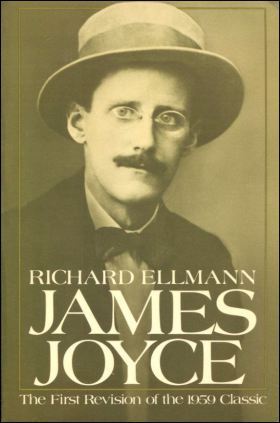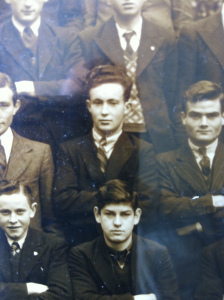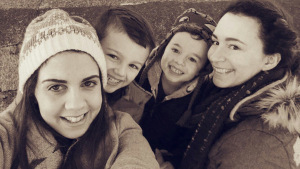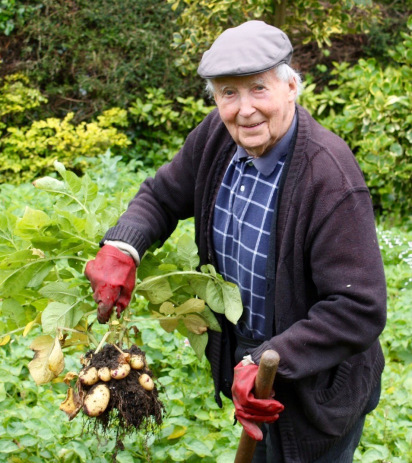Dermott Hayes's Blog: Postcard from a Pigeon, page 72
May 22, 2016
Whole Lotta Love
A thought, like a fragrant breeze, enveloped him. His mind had been wandering in the grinding routine of another day in the dosshouse kitchen.
Now his reverie lifted his spirit and let it soar from the grease and grime of his surroundings. There must have been magic in the air that day all those years ago. The memory never left him. He could remember that first kiss. That soft awkward collision of teeth, tongues and tissue. It was a moment to savour for a lifetime.
Not just because he discovered love, but because it began another passion. One that lasted a lifetime.
He could remember it as if it were yesterday and even though it was 54 years ago when they were ten, in love and innocent., the taste, touch and smell lingered on.
The memory of that first kiss, fragrant and pungent, soft but insistent, could flood his senses now as he sweated off two pounds of onions, four pounds of cubed potato and four pounds of diced carrot in a ten gallon soup pot .
They were two ten year olds playing in a school shed on a hot summer’s day when they sought shelter and respite from the blazing sun.
“Are you my girlfriend?” he asked her, “I am,” she said, her head slightly bowed and tilted while one eye squinted and twinkled with mischief. “Will you kiss me?” she asked. “I don’t know how,” he said, “I’ve never kissed before, like that.”
They sat on a wooden bench, cool and shaded from the sun. Susan wore pink shorts. She held his hand. He felt a glow from the close warmth of her body. She smelled of hair and shampoo and just a salty trace of sweat.
“Should we close our eyes?” he asked. “Not unless we want to miss each other,” she told him, “but maybe we can close our eyes in a while…”
If Susan had a sentence to finish she abandoned it as, tilting her head to her right, she brought her sweet mouth to his. As her soft pink lips touched his mouth he remembered thinking of clouds. And sweet plums, fragrant flowers and…
“What’s that taste? What have you been eating?” he blurted. She looked puzzled. Susan was American, from Tennessee, in fact, with a mess of tight blonde curls on her head, long legs and smooth, sallow skin. Her reddish pink lips stood out like blisters on her face. Her family, she told him, was Italian American.
“It’s garlic,” she announced but he was none the wiser.
“What’s garlic?” he asked.
“It’s kinda like an onion,’’ she told him, “Mom puts lots of it in her pasta sauce. She says it protects us from Irish colds.”
He nodded sagely without a blind notion of what she was talking about.
“What’s pasta?” he struggled.
Susan looked at him, her green eyed Irish boy, with a mixture of pity and puzzlement. They were too young to suffer the affront of diverting their passion so hastily from kissing to food.
“Pasta is, like, spaghetti and linguini,” she said, clearly satisfied that her explanation would lay the matter to rest. Her eyes half shut, Susan licked her lips, puckered and slowly moved towards him.
But he wasn’t finished. Aroused by the exoticism of her flavour, he needed to know more. Although as skinny as a stick, he was, his own mother often said, blessed with an appetite. “You’ll eat me out of house and home,” she often remarked.
“What’s spa – getty and lin – gweeny?” he asked.
“It’s food,” she snapped in exasperation, “like, you guys eat so many potatoes. We eat pasta and rice.”
“Rice?” he said, the only rice I knew was a sweet and gritty, cold pudding.
Although it was not immediately apparent to either of them, his passion, such as he was aware of it, was not in the least diminished by this unexpected diversion into the culinary mysteries of American cuisine.
He was already aware that many of his American neighbours didn’t get their dinner until the evening, never eat tea at tea time and had lunch and supper in their daily regime.
His own family, like all the Irish families he knew, had breakfast of porridge, tea and toast; dinner at one with meat and two veg and a heap of flowery spuds and tea with salad or baked beans and sausages for teatime, around 6.30pm.
If you were lucky, you had a glass of hot chocolate and a couple of Goldgrain biscuits before your bedtime. That was supper.
On Sunday there was a roast of flesh or fowl and the leftovers were eaten cold on Monday for tea. They had Irish stew of a Tuesday and boiled bacon and cabbage of a Wednesday. On Thursday there was a fry-up and on Friday, a day of fasting, they ate fish . Saturday was always left to its own designs and a bit of braised round steak or a gigot lamb chop were the best bets.
All of the above were eaten with boiled carrots and parsnips or cabbage because that’s what was grown in the garden. They had their own spuds, too.
Food, in other words, was as predictable as the Irish weather and just as soggy. Americans, on the other hand, had French fries and potato chips; as well as guacamole, salsa, fried chicken, sweetcorn, pasta and garlic.
A whiff of garlic, life would soon teach him, could quell the passion of a mountain goat. But not him. He got his first taste of garlic the day he first tasted love.
Susan brought him home to meet her Momma who served them tall glasses of Kool-Aid frosted with ice. Then her Momma showed him garlic and linguini, spaghetti and fettucini. She taught him the secret of her sauce and let him stir the gently bubbling pot of tomatoes. And he looked at Susan and knew he’d always love her for what she’d never know she gave him.
The clang of the bells told him the doors were open and all the nightlife, drunk, drugged and dopey, were jostling for places in the food line. Ok, so the food was slow stewed chuck meat and whatever vegetables he could lay his hands on at the market, before they got dumped. But there was always a little garlic and a whole lotta love.


Artists’ Reflections on Creation
May 21, 2016
Anyone can write
"Why is writing so much harder for me than it is for everybody else?" — every novelist ever, secretly to themselves, all the time
— Lev Grossman (@leverus) April 28, 2015
Someone commented on a story of mine, recently, that they couldn’t write fiction and I thought, why not?
Anyone can write but not everyone will write a story that every one wants to read. That takes time and practice.
There are no rules in writing but a story, everyone understands, has a beginning, a middle and an end. Now, if you write stories all the time, whether novels or short stories, then you will find yourself asking the question, posed above, by Lev Grossman.
But, you see, every writer will ask themselves that question all the time, if they’re serious about what they’re doing. For a writer, stories never end, they evolve. And then a time comes along when they dress them up, give them a packed lunch and send them out in the world, to fend for themselves.
Kurt Vonnegut is one of the writers I’ve always admired and it was he who first gave me the confidence to write, simply because he said, there are no rules. He did provide eight simple guidelines, though, in a preface to a collection of short stories. He called it ‘Writing 101.’
This is his list.
Use the time of a total stranger in such a way that he or she will not feel the time was wasted.
Give the reader at least one character he or she can root for.
Every character should want something, even if it is only a glass of water.
Every sentence must do one of two things—reveal character or advance the action.
Start as close to the end as possible.
Be a sadist. No matter how sweet and innocent your leading characters, make awful things happen to them—in order that the reader may see what they are made of.
Write to please just one person. If you open a window and make love to the world, so to speak, your story will get pneumonia.
Give your readers as much information as possible as soon as possible. To heck with suspense. Readers should have such complete understanding of what is going on, where and why, that they could finish the story themselves, should cockroaches eat the last few pages.
Now, while I admire what he says, I wouldn’t follow it like it was gospel and, I believe, Kurt Vonnegut wouldn’t want you to, either.
So, I was thinking about this and could I find a way to help people find their own writing voice?
Say you were to describe something commonplace, maybe a memory, from your childhood, for example, like learning to ride a bicycle. Sit down and do that, remember where you were, describe the bicycle, the day it happened. What was the weather like? Who was there? Did you have someone hold the saddle while you tried to get your balance? If you fell off or crashed, how many times did that happen? What sort of injuries did you have, a scraped knee, elbows? Were you embarrassed? How did you feel, once you’d mastered the balance, the pedalling and the steering and you were steaming away, down the street, on your own pedal power with the wind in your hair and the world flying by, all around you?
So, once you’ve done all that, you’ll have remembered, observed, described, imagined and felt and those are, pretty much, the same tools any writer uses, aside from vocabulary and that you learn from reading. You have to read and not just comic books or magazines in the dentist’s surgery or the latest bestseller. No, you have to go out and make a point of taking a journey through writing, find out how others write.
Now that your cycling experience is written, do something else with it. First, make the story someone else’s. Change all the first person for third person, so ‘I’ becomes ‘he’, ‘she’ or ‘they’.
After that, change the tense and tell the story in real time, as it happens. Do all that and believe me, you’re writing.


Where I like to work
 I live in a tiny apartment in one of Dublin’s oldest neighbourhoods called The Liberties. My place is a classic artist’s garret. It’s even got skylights for windows and a view of a church tower, right outside my window. I’ve also got a small garden on my roof so, in summer, I sit outside and work or, if I need a break, I can potter about in my garden. My place is an oasis where I can forget the world outside, and often do.
I live in a tiny apartment in one of Dublin’s oldest neighbourhoods called The Liberties. My place is a classic artist’s garret. It’s even got skylights for windows and a view of a church tower, right outside my window. I’ve also got a small garden on my roof so, in summer, I sit outside and work or, if I need a break, I can potter about in my garden. My place is an oasis where I can forget the world outside, and often do.






May 20, 2016
Several bricks in the wall : Daily Prompt

This walled archway is a section of the outer wall of the old Dublin Fruit and Vegetable Market in the city’s Smithfield district. It is a monument to the craft of bricklaying.


Joyce & Proust Meet
Twin towers of literature, unrelated, unrelating
From
 that greatest of literary biographies, Richard Ellmann’s
James Joyce
, here is the account of Joyce meeting Marcel Proust, only a few months before Proust’s death:
that greatest of literary biographies, Richard Ellmann’s
James Joyce
, here is the account of Joyce meeting Marcel Proust, only a few months before Proust’s death:
On May 18, 1922, Sydney Schiff (“Stephen Hudson”), the English novelist whom Joyce had met a few times, invited him to a supper party for Stravinsky and Diaghilev following the first performance of one of their ballets. Joyce arrived late and apologized for not having dressed; at this time he had no formal clothes. He was drinking heavily to cover his embarrassment when the door opened and Marcel Proust in a fur coat appeared, as Joyce said afterwards, “like the hero of The Sorrows of Satan.” Schiff had mentioned the party to Proust but had not ventured to invite him because of Proust’s known unwillingness to emerge from his flat. Joyce followed Schiff and Mrs. Schiff to the door, was introduced…
View original post 631 more words


Churches

I’ve always had a thing about churches. They’re a haven from the outside world, a sanctuary where the mind can wander and meditate in silence.
My relationship with churches, though, is tempered by what they represent. Those vast, cavernous, cathedral buildings represented power and intimidation, too. In such a massive space, how could a sinner not feel intimidated and penitent.
Churches are among some of my earliest memories. My mother was a very devout Roman Catholic whose day was not complete without a visit to the church. She helped out with the flower arrangements, did some voluntary, cleaning work and attended sodalities, rosaries and special Masses.
She had her own devotion to St Martin of Porres, an ascetic, Brazilian monk who endured severe hardship and deprivation, throughout his life, as part of his own religious journey. When she went to church, she lit candles and prayed for the dead. Her missal (prayer book) was packed with memorials to deceased relatives and friends, whose souls’ redemption, she prayed for, every day.
The sound of people, like my mother, praying, in an empty church will always echo in my head. Their whispering chants and mantra like drones and sometimes, whistles, rattle around in my head.
Although I have little time for religion, I do believe in the fervour of their belief, those women and men of my parents’ generation. Yet, it’s tempered by the sickening revelations of abuse and cover ups that have plagued the Roman Catholic church, in particular. 
But most of all, I don’t like religion because, while most of them hold ‘love’ to be a central tenet of their beliefs, too many people have died, in hate, in defence of those beliefs, I wrote a song, once, called ‘Dying to Believe’, on that very subject. This was the chorus,
Kill me with faith
Beat me up with the truth
Lay me out with the evidence
I m dying to believe
So I like to visit churches, alone. I sit and listen and think but I don’t believe. I have no issue with others’ beliefs, just leave me out of it. I live in the grounds of a church and enjoy the site of a beautiful church tower, outside my bedroom window, every day. Within a short walking of distance of where I live, the two largest and oldest cathedrals in Ireland regularly ring out the time of day or the call for devotion.





Starman: Life on TrappistOne: #3 Obsession
Writers Quote Wednesday : Obsession
Quotes from Oh You Pretty Things and Space Oddity, by David Bowie © Sony/ATV Music Publishing LLC, BMG RIGHTS MANAGEMENT US, LLC, TINTORETTO MUSIC
 ‘Wake up, you sleepy head,’ the Starman’s words were ringing in his head, even as he performed his morning functions. These were the mechanical tasks he learned in BeFo, wash, dress, prepare, but now he felt a new urgency. He took out the Tablet, he found on the alien vessel, and tapped the launch pad with the imprint of his index finger, just as instructed.
‘Wake up, you sleepy head,’ the Starman’s words were ringing in his head, even as he performed his morning functions. These were the mechanical tasks he learned in BeFo, wash, dress, prepare, but now he felt a new urgency. He took out the Tablet, he found on the alien vessel, and tapped the launch pad with the imprint of his index finger, just as instructed.
It was very much like the InfoTab everyone on TrappistOne possessed, except far more inferior, even primitive. Where his and other Units’ InfoTab could be accessed by psychoImpulse (psychImp), this required almost as much input as output. At least with this tablet, a cumbersome lump of hardware that he dared not carry about, he could record his actions and discoveries without entering them in to the Grand Unit Consciousness (GrUnCo).
By not using PsychImp, he avoided his discoveries becoming part of the collective consciousness. It was another step outside, a step away. His mind was already gathering memories and a panoply of emotions, he struggled to comprehend. By studying the alien chronicles on the Tablet, he noted and described each experience. So far, as far as he could gather, he experienced fear, anticipation, excitement and dread.
The Starman’s songs were a warning, he figured.
Look out my window and what do I see
A crack in the sky and a hand reaching down to me
All the nightmares came today
And it looks as though they’re here to stay
But he must be careful. The receptobots were programmed to notice change, in his behaviour, even his thoughts, through PsychImp, could trigger alarms in the GrUnCo. The Starman came from a far away planet, out there in the stars. His journey was long and not without difficulties and problems.
Ground Control to Major Tom
Your circuit’s dead, there’s something wrong
Can you hear me, Major Tom?
And that urgency, he felt, was fueled, not just by the fear of being found out, but by his compelling to desire to discover the truth. Yes, that was it, an obsession.



May 19, 2016
Skinny Elvis
Took a night and day, away from WordPress and Postcard from a Pigeon with several stories brewing in my head, for a night of R&R at a local pub, Bruxelles, where I caught my old mate, Ciaran ‘Foxy’ Murphy and his rockabilly band, Skinny Elvis. Pictures by me.










May 18, 2016
Saying goodbye
I’m with Edith Piaf on the subject of regret because it’s a negative thing, unlike grief. Now that’s a personal thing, something you do, in your own time and way. My father died last year, his 93rd. I wrote this story about him. I call it My Father was a Stranger

Martin Hayes
My father was a stranger to me when I was a boy. I never really got to know him as I grew up either. He was and always will be the man in the black uniform with the gold sleeve bands, bicycle clips and a beret. He wore the beret when he cycled to and from work. At work he wore a white cap with a black shiny brim and a gold band to match the bands on his uniform jacket.
They say the boy is father to the parent or something like that. I was never too sure what that meant. I could never imagine being his father. He used to tell us some stories about his childhood days. They were strange times when an orange was the kind of treat you got in your Christmas stocking and a motor car passing in the road was enough for everyone to drop what they were doing just to watch it pass by.
I loved those stories, especially the Christmas ones. Christmas was a big time for him where he grew up. It was a tiny farm on the outskirts of a country village where nothing ever happened, seasons passed. At Christmas time his mother would kill a goose and he’d get an orange, an apple, a handful of hard-boiled sweets and a spinning top in his stocking.
His days were filled with farming chores and schoolboy adventures in the fields where they’d chase down rabbits, set snares, pick berries from the hedgerows and rob eggs from birds’ nests. He walked to school every day, a three-mile hike, there and back. They read the adventures of Jimin, a roguish schoolboy like themselves and played tricks on one another.
My father went to the local College when he was older. He went on scholarship because he was smart and the youngest in the family. His parents bought him a bicycle so he could make the twelve-mile journey, there and back, every day. I think those were the happiest days of his life when he learned Latin and Greek, read Shakespeare, Wordsworth, Milton and Goldsmith. For as long as I can remember, he recited Homer or Ovid or any classic you could mention. Poetry was his favourite topic but Shakespeare held a special place in his heart. He wore a secret, whimsical smile when he found a phrase or an apt quote to suit a situation as it arose.
‘Neither a borrower nor a lender be,’ he told us, if we were stuck, before rustling in his pocket to find a coin or ‘the fashion wears out more apparel than the man,’ when my brother returned from holiday with yellow loons and a satin turquoise shirt with flamboyant ruffles.
We all groaned when he recited but we listened and remembered those epic stories of Dan McGrew and Sam McGee and The Little Green Eyed ldol to the North of Katmandu and how he’d call us ‘a stor’ or ‘a mhic’ when it was time for him to share some words of wisdom or consolation but not for admonishment. His love of learning and knowledge helped us love it too as we aspired, like the reluctant schoolboy, ‘to roll to bed with a Latin phrase and rise with a verse of Greek.’
He remained a stranger to me for all that. He tried to make it to the important games but his work always took him away until he was a stranger who wrote occasional letters and returned to visit, once a month, tired after a long train journey with at least one gift for each of us, a book about fly fishing or a magazine or a sliotar bought in Elvery’s, the emporium of sport. He’d tell us stories of his ‘digs’ and the people there.
He described to us the city, the people, the cars, the buses and the trams. I loved his stories of the cinemas we could only dream of because they were picture houses where we lived, a projector on a table in the community hall, propped up with a telephone directory. There were two films he loved so much, he went back twice to see them. One was Of Mice and Men, based on a short story by the American writer, John Steinbeck. The other was The Heart is a Lonely Hunter based on a novel by Carson McCullers about a deaf man in a small town.
I knew he cried whenever he went to see it. It was a sad and poignant story if a tad maudlin and more than a little bit patronizing to deaf people. But the character, John Singer, the deaf guy played by Alan Arkin, was a sympathetic and intelligent person with depths of understanding and a gift for communication beyond his disability. It took me years to figure out why my father loved it. Then I remembered a story he told of his best friend in school and his friend was deaf. My father was lonely.
Of course, I never said this to him. Partly because it has taken me years to work it out, the sacrifices they both made to give us the one thing in his life he had ever loved, the love of learning. We didn’t discuss our feelings, desires or hopes. At least not until I had grown up, moved away, married, had children and got divorced. He never approved of my career path but when his efforts to steer me into the comfort of public service failed, he gave up and allowed me follow my own path, always supportive, slightly doubting and never approving.
It made me feel uncomfortable. I wanted his approval and his admiration. I didn’t mean to defy him. My brothers tried but they went the way he wanted in the end. I went my own way, one fraught with minor risk and petty defiance. He frowned, demurred short of a tut tut of disapproval and sometimes raised the spectre of ‘the service’ but in the end, he relented. It was as though I was that young person, the youngest in the family, who was given the opportunity to grow beyond the boundaries of his experience.
I never understood the boundaries of his experience. We learned through snippets of recall, the recitations and the quotes, the context of some of those tales. He never spoke of his father like I knew I talked about him. I knew he’d gone from high achievement in his Leaving Certificate to an agricultural college in Galway and from there, by dint of further scholarly achievement, to a college in Dublin where penury overcame him and he joined his beloved ‘service’ that, in those days, took only the brightest and the best for, if they were poor, there was nowhere else to go.
But there was an alternative in those days for a young man in the prime of health with dreams of adventure and experience. There was a war on, DeValera had taken back the ports and Ireland was neutral. Belfast and the British army recruiting office was a train ride away. It was an opportunity to travel, fight the Hun and free the world. It was a guarantee of work and adventure.
There was one other alternative. Maybe the desire to wear a uniform was a driving factor. The job he had in the civil service had a grand title. He was an agricultural inspector but they gave him a bicycle and a suitcase of seeds and pamphlets and sent him west like a traveling preacher, to spread the word and sow the seeds of good husbandry among the peasant farmers west of the Shannon.
He rarely spoke of those years in the wilderness of Connaught, cycling the dirt roads through the bleak hills and mountains in every weather with only a raincoat and the clothes on his back to visit market towns. I found out later by accident that he’d stayed in a succession of boarding houses in Roscommon, Sligo and Mayo in those pre-war years when the nation got a Constitution and Dev banned British coal and won back the ports. Neville Chamberlain talked of peace but the dogs in the street talked of war, a war to beat all wars.
It was on a family holiday to Achill Island when we spent three weeks in a caravan park in that Atlantic sunshine and my brother got so burned, his skin broke out in blisters. We took the car to Westport as a special treat for us all and so my brother could be brought to the regional nurse for ointment. And while my mother attended to my brother, daddy walked us up the main street of Westport where we could stare in the shop windows at the gew gaws and glass jars full of hard boiled sweets, clove drops and gob stoppers.
It was while we strolled up that street that day my father called us to him and ushered us in the door of a hotel in the main street although the sign above the door was modest and unassuming. There was a small bar and the warm smell of fried onions and cabbage and my father sat us down and bought us all bottles of red lemonade, which we drank with straws.
So we sat and whispered to each other because we’d never been in a place like this before with a carpet on the floor, straight off the street. And we listened while my father sipped a glass of stout and spoke to the landlady of those days when he’d been a regular guest there more than twenty years before. Then the woman, who was as grey haired as my father with a thin nose and a turkey’s wattle, rooted about in a box in a cupboard behind the bar until she produced a book with a worn red leather cover and perched her spectacles at the end of her thin nose while she thumbed the pages until she slapped her bony hand on a page and turned the book with a flourish.
“Padraig M., it was,’ she declared, ‘that’s how you signed your name?’ she asked. And my father stared at the page and said nothing. We watched him turn the pages in silence, reading the episodes of his forgotten past, quietly reliving his secret memories. And we forgot our bottles of lemonade to climb into the stools beside him so we could stare in awe at his signature on the yellowed pages and wonder whom he was, that man who came here every fortnight for two years back in a time when we were not alive. I remember my father never spoke. He just stared at the pages and sipped his drink. When he finished, he pushed his glass away, paid the landlady with a crisp, orange ten shilling note and thanked her as he collected his change. We collected my mother and bandaged brother and drove back to the caravan park and no one spoke.
I stared at Croagh Patrick on the drive and thought of my father cycling his bicycle in the shadow of that behemoth, battered by rain and wind.
Many years later, in my own family home as my own daughters scrabbled about in boxes and bags, unwrapping their gifts while we put together breakfast and lined up the provisions for our Christmas dinner, my brother arrived with presents and my father, on a surprise visit.
My daughters squealed with delight. He told them funny stories, spoke to them in Gaelic and made them giggle excitedly. He told them seanfhocail – the old Irish proverbs – and explained their meaning. He quoted Latin and poetry to them and he took pleasure in their wonder. As I did while I listened to him because I heard all those stories before from him when I was their age. And I wondered again about this man whom I fought and argued with, whom I never really knew. Because I knew I told these same stories to my girls and loved to tell them as he told them to me. And how much pleasure they got from them as I did in there relating.
In the intervening years as I grew from boy to youth to man, I’d resisted the lure of the ‘service’ for my own love of history and writing. I’d become a journalist, a writer manqué, as I joked to my friends while I knew and feared the boundaries of my own limitations. It was growing up, falling in and out of love, earning a living, marrying, having children, buying a house with a mortgage; struggling, working and sometimes hating yourself for not knowing what it was you hated. I’d traveled but never enough, drawn back, restricted, a captive of reality and living, family and rising interest rates. I hated myself for blaming those whom I loved for holding me back when I was my own worst enemy, a foe I could never acknowledge.
We had another guest that Christmas, a friend of mine from Bangor, Co Down. My marriage was grinding to a rust bound halt, weighed down by the relentless struggle and the intellectual inertia of marriage to someone who became more of a stranger with the passing of the years. My friend, Cathy, would have spent Christmas on her own in a bed-sit in the deserted streets of the city. And I would have spent my Christmas alone too, surrounded by my family. So I invited her to spend the day with us so we could keep each other company.
And my father, who could always summon a twinkle when in the company of attractive women, told her a story I never heard before as he sat with her in our living room, nursing a tumbler of ten-year-old malt. ‘Just a sma’t’le drop,’ as he always said when it was offered, holding his forefinger and thumb a couple of inches apart as he squinted at me.
‘I met a woman from Bangor once,’ he told her, ‘she was a great beauty and very grand. It was on the train to Belfast around the start of the war. Oh she was a great beauty…’
He stared into the brown glimmer of the whiskey as though looking at the past through a crystal. His eyes closed to slits and though he smiled, I remembered the wistful loneliness of past memories recalled. And we stared into the whiskey with him as if we might see what he was seeing. And we waited to hear the story, untold, unfold.
‘I was on my way to Belfast,’ he told Cathy as we listened, ‘to join the British army. I was going to the recruiting office to join up and fight the Germans.’
I remember feeling electrified, shocked and benumbed, knowing nothing but the sound of these words as they tumbled from him, as a new reality, a new past, a new history was scrambling my perception.
‘We had few choices in those days and I wasn’t happy in the job I was in,’ he went on, his words hitting my brain like the tap tapping keys of a typewriter in a noisy newsroom, ‘so I went to Dublin and got on that train.’ Anticipation and silence hung in the air.
“And that’s when I met her…the woman from Bangor. She wasn’t much older than yourself,’ he told Cathy who was 25, and I realized he would have been about 20 then, in the company of an attractive older woman on a train to Belfast to join the British army, my father, the republican. My head was in a tunnel where only the sound of his words could be heard. And then I couldn’t hear them or I missed the rest of the story or he didn’t tell any more. Because then I heard him say, ‘we got off that train together in Dundalk and I went back on the train to Dublin that night and I never joined the British army.’
I heard Cathy ask if they ever met again and saw him stare into his glass with that faraway look before he shook his head, smiled and said, ‘no.’
He drained his glass, looked at my brother and stood up, indicating he was ready now to leave. He smiled again at Cathy and took her hand in both of his, telling her how delighted he was to meet her before uttering a complimentary phrase in Gaelic, ‘Nollaig Shona, a stor, agus bliain nua ailinn faoi mhaise duit,’ (a bright Christmas and a beautiful New Year to you, my dear). And as he put down his glass, he inhaled and exhaled noisily and muttered, ‘that’s powerful whiskey’ to divert us from his red rimmed eyes and the tear he wiped away with the back of his sleeve.
And I loved him then more than I’d ever loved him because he gave me a glimpse of myself and where I’d come from and what made me tick, or not.


Postcard from a Pigeon
- Dermott Hayes's profile
- 4 followers







